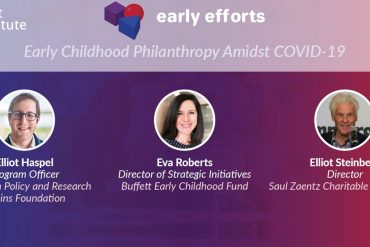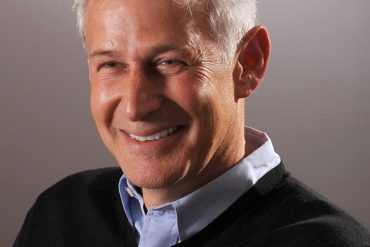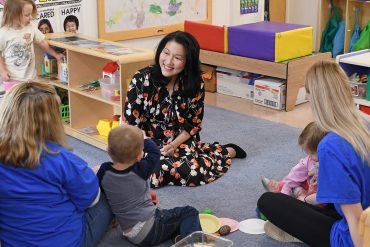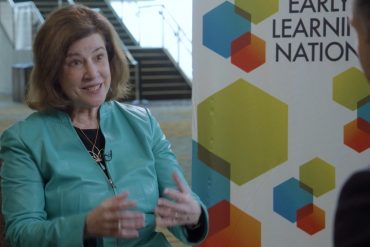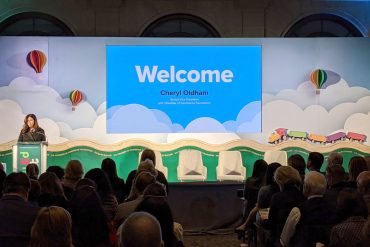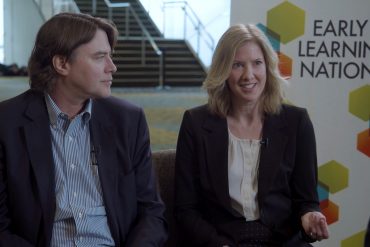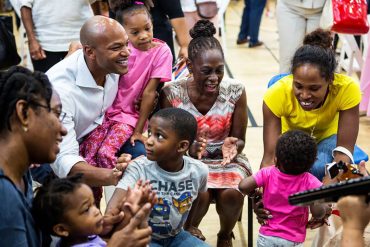Because we can’t take our Early Learning Nation Studio on the road during this time, stay tuned as ELN recaps...
Some experts say that when it comes specifically to teaching consent, sex education for young children can be done without being explicit, and it can help kids learn about boundaries and empathy when it comes to their own bodies and the bodies of other people.
5 Takeaways from Jack Shonkoff’s EdRedesign Keynote
Welcome to Our New Column Covering Live Events
On May 19, Dr. Jack P. Shonkoff delivered the Education Redesign Lab (EdRedesign) spring keynote address via YouTube. Among his many distinctions, Dr. Shonkoff—Director of Harvard’s Center on the Developing Child and Professor at Harvard T.H. Chan School of Public Health, Harvard Medical School, and Harvard Graduate School of Education—was awarded the 2019 LEGO Prize for revolutionizing the field of early child development. Here are our notes from his remarks.
Early Learning Nation magazine recently interviewed Michelle Kang, CEO of the National Association for the Education of Young Children (NAEYC),...
Early Learning Nation’s community of experts, advocates, leaders and readers continues to grow. As much as we’d like to, we...
From “helicoptering” to “snowplowing,” parents are often tempted to simply remove obstacles from children’s way, preventing them from learning how to deal with challenges themselves. Instead, as Ellen Galinsky, Bezos Family Foundation Chief Science Officer and Founder/Executive Director of Mind in the Making, explains, the better approach is to build “Autonomy Support” – helping children gain the independence skills they’ll need to become successful adults. Filmed for Early Learning Nation’s Mobile Studio at the Society for Research in Child Development’s biennial meeting in Baltimore, MD, on March 22, 2019. #SRCD19
Investing in New Systems for Paying Educators What They Need and Deserve
New Grant Opportunity Deadline May 1, 2023
For U.S. children to realize their potential, the professionals who care and educate them need the training, respect and compensation...
What are you most thankful for in the early learning world? We put the question to Early Learning Nation’s community...
On February 28, the U.S. Chamber of Commerce held a summit for early education advocates and professionals, highlighting the work...
Executive function – the skills to focus and manage tasks – is, of course, central to childhood development. Given that, measuring executive function becomes imperative. How does that work? University of Minnesota professors Stephanie M. Carlson & Philip David Zelazo explain their research and the powerful tool they’ve created. Filmed for Early Learning Nation’s Mobile Studio at the Society for Research in Child Development’s biennial meeting in Baltimore, MD, on March 22, 2019. #SRCD19
The increased public understanding that childhood adversity, including adverse childhood experiences, can cause trauma and toxic stress—and, in turn, have a lasting impact on children’s physical and mental health—presents an important opportunity to turn this awareness into action.
Robin Hood FUELs the Future for Children
Shares Brain Science, Strategically Partners to Create an Early Learning Metropolis
The greatest city in the world. More than 100,000 children 0-3 growing up in poverty. Two facts that are painful to reconcile.
This is a job for Robin Hood. Unafraid to challenge the seemingly intractable, the grant maker and all-around poverty fighter combines rigorous data and strategic partnerships with powerhouse fundraising.
Here’s the story behind the $50 million, five-year Fund for Early Learning (FUEL) .


